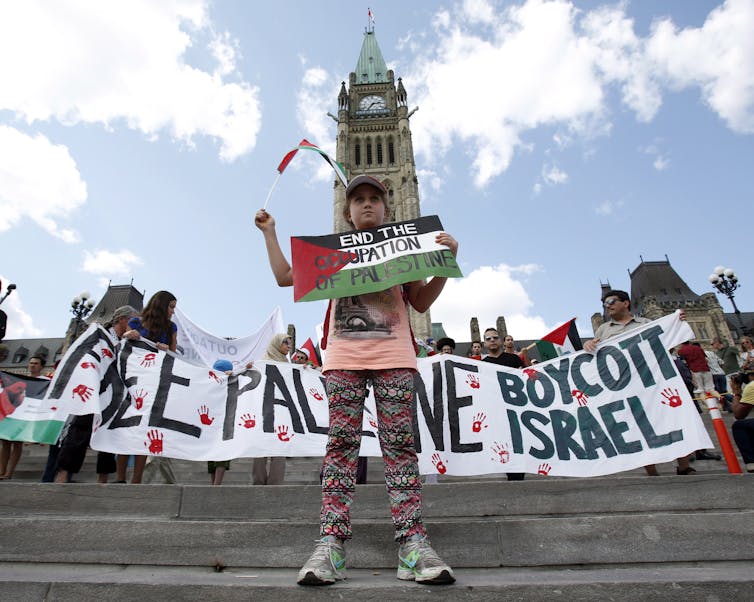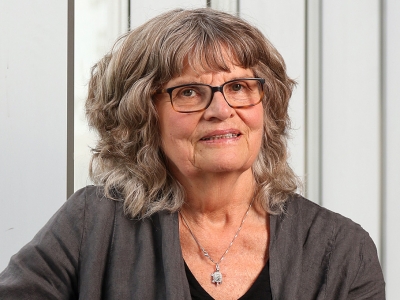By Reem Bahdi, Jeremy Wildeman, Nadia Abu-Zahra, and Ruby Dagher
Majd Mashharawi describes herself and other Palestinian entrepreneurs as “full of dreams, life, energy and hope.” She is determined to improve peoples’ lives.
Canada recently announced that $37 million of a $50 million development aid package will go to supporting Palestinian entrepreneurship. Rather than assist people like Majd, however, Canadian aid won’t do much good. The problem is not aid itself. The problem is the way Canada administers aid.
Majd is special. She dreams big. Only 25, Majd is a Gaza-educated civil engineer, the CEO of her own firm and has been named one of Fast Company’s most creative people in business in 2018. Two of her inventions have received international acclaim.
SunBox is a household solar kit to address the 20 hours a day when power is cut off to all Gazans. GreenCake is an economical, environmentally friendly construction brick made from the rubble and ash left in the wake of Israeli military attacks.
There is no doubt that talent like Majd’s must be nurtured. There is also no doubt that Palestinians face dire economic circumstances. Food insecurity runs deep.
Causes of Palestinian hardship are ignored
But Canadian aid won’t help much because it ignores the causes of the economic and social suffering that development is supposed to fix. Canadian aid focuses on improving the internal affairs of Palestinians. But it ignores Israel’s control of Palestinian daily life.
Canada’s recent aid announcement shows how much Canada overlooks Israel’s responsibility for Palestinian problems. Canadian aid will give a select group of entrepreneurs technical training to bolster innovation. But the main reasons for the Palestinian inability to innovate and grow their economy — repressive regulations, travel restrictions, land theft, lack of freedom — remain intact.
Israel controls about 60 per cent of the land in the West Bank where it severely restricts Palestinian travel. Israel has demolished Palestinian infrastructure, including homes. The Israeli government has confiscated Palestinian land largely for Israeli settlements and has assumed control of natural resources, including water.
For more than a decade, Israel, with cooperation from Egypt, has blockaded 1.7 million people in Gaza, a space barely six by 60 kilometres. Most Gazans have no running water. Available water is polluted with salt and sewage.
The United Nations has declared Gaza uninhabitable.
Mail returned as a ‘gesture’
Israel impedes almost every aspect of daily Palestinian life. Recently, Israel released more than 10 tons of mail addressed to Palestinians that it had held arbitrarily for eight years. This release was described as a “gesture.”
For 17 years, Palestinian entrepreneurs were forced to work on snail-paced internet speeds. Only this summer was the West Bank, but not Gaza, allowed 3G.
For her part, Majd Mashharawi has been prevented by Israeli restrictions from travelling to show her products to potential investors. Israeli officials have also held up delivery of the materials that she and her partners need to begin installing Sunbox. As a result, they have watched their debts pile up.
Entrepreneurship cannot be sustained under such repression and uncertainty. Economic development is impossible.
But Canadian aid programming has shifted the task of fixing poverty onto the shoulders of Palestinian entrepreneurs, while ignoring that Palestinian poverty is structurally created by human rights violations, siege, military occupation and the theft of Indigenous resources on a massive scale.
Palestinian aid benefits Israel
Israel will be the main financial beneficiary of Canadian aid to Palestinians. Under international law, Israel, as an occupying state, remains responsible for the well-being of Palestinian civilians. But foreign aid to Palestinians has relieved Israel of the financial pressure of providing well-being to Palestinians.
More than 70 per cent of Palestinian aid funding is diverted into the Israeli economy. Some donor-funded projects even further Israeli expansionism. Roads, for example, have helped consolidate Israeli control over the West Bank by restricting Palestinian travel.
When Israel engages in practices that sabotage Canadian aid efforts, like restricting travel or holding back mail, Canada rarely, if ever, objects.

Unsurprisingly, given the benefits that it receives from it, Israel welcomes foreign aid to Palestinians. Israel’s ambassador has called Canadian aid “indispensable.”
Canadian policy vs. practice
Official Canadian policy states that Israeli settlements, land confiscation and treatment of Palestinians are wrong. But Canada continues to offer Israel firm political support anyway. Over the past decade, Canada has rewarded Israel with enhanced trade relations. Canada has also regularly voted against United Nations resolutions to censure Israeli violence.
As Canada has increased its aid to Palestinians, their living conditions have deteriorated and the prospect of peace has declined.
Meanwhile, Canadian aid will continue to do little good if the government continues to ignore Israel’s role in destroying the Palestinian economy and violating basic human rights.
This article is republished from The Conversation under a Creative Commons license. Carleton University is a member of this unique digital journalism platform that launched in June 2017 to boost visibility of Canada’s academic faculty and researchers. Interested in writing a piece? Please contact Steven Reid or sign up to become an author.
All photos provided by The Conversation from various sources.
![]()
Thursday, August 23, 2018 in The Conversation
Share: Twitter, Facebook



